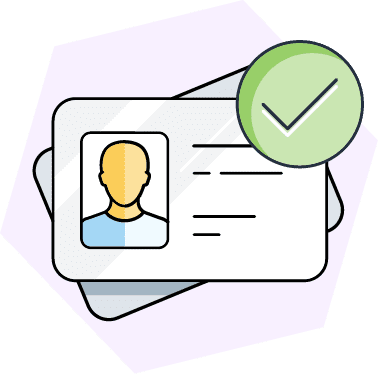What Happens If Someone Wrecks Your Car But They Are Not On Your Insurance?
Your auto insurance policy typically applies to a vehicle regardless of who is behind the wheel, so it’ll generally cover non-policyholders as long as they have your permission to drive the car. But of course, there are some exceptions.
If someone wrecks your car when they do not have permission to use the vehicle, is listed as an excluded driver on your policy, or does not have a driver’s license, your insurance policy will most likely not pay for the damages.
Table of Contents
How Does Coverage Of Other Drivers Work?
As long as you purchase adequate coverage, your auto insurance company should pay for the damages in the event of an accident. However, if the accident is caused by someone who did not have permission to drive your car — your insurance will likely not cover the incident.
Who Is Covered When They Drive Your Car?

Contrary to popular belief, auto insurance generally follows the car, not the person driving the vehicle. So, if you let someone borrow your car and they get into an accident, your policy’s liability coverage will pay for the damage or injury they caused to someone else. And your policy’s collision coverage will pay for the damage to your vehicle.
In other words, if you let your family member or friend borrow your car, they’re technically borrowing your auto insurance policy, too. However, there are exceptions. If someone drives your car without a license or without your permission and wrecks it, your insurance policy may not cover the damage.
What Is Permissive Use?
If you allow someone to borrow your car, they’re covered by your auto insurance policy since they have “permissive use.” Permissive use means you give someone who’s not specifically listed as a driver in your auto insurance policy permission to drive your vehicle. Whether expressed verbally or implied, someone with permissive use of your car should receive the same protection you get from your insurance policy.
However, while most insurers allow for permissive drivers, some may not. So, always review your policy details before handing over your keys.
What Is Non-Permissive Use?
Non-permissive use is when someone drives your vehicle without your permission. If this person crashes your car, their auto insurance may kick in as the primary coverage in some cases. However, if that person does not have auto insurance, they may be personally liable for the costs since your insurance company will most likely not cover the losses.
Who Covers The Damages If The Other Driver Has Insurance?
In most cases, your insurance policy will kick in first to cover another driver in the event of an accident if they had your permission to drive your vehicle. However, if the person driving your car does not have your consent to use it and gets into an accident, your insurance will generally not cover the damages. Instead, that person’s insurance will be liable.
What If The Other Driver Is Uninsured?
Suppose an uninsured driver borrows your car and is found at fault in an accident. In that case, your insurance policy will typically cover the losses as long as that person has permissive use, has a valid driver’s license, and is not an excluded driver on your policy. But if your friend or family member is uninsured and gets into a car accident caused by another person while driving your vehicle, that at-fault person’s insurance should cover the damages.
Will Your Premiums Increase?
If you let someone borrow your car and they crash it, your premiums will most likely increase since your insurer now considers you a risk. Car insurance follows the vehicle and not the person, so even though you were not behind the wheel, you can still expect to face higher premiums for the next three to five years after an at-fault accident.
Exactly how much your premiums will increase depends on the circumstances of the accident and your claims history, but it could be anywhere from a few dollars extra a month to a 50% rate hike.
How To Better Protect Your Self and Your Vehicle
While it’s perfectly legal to let your family and friends borrow your car, it could be risky. Here’s how to protect yourself and your vehicle if you must lend it to someone else.

- Ask to see their driver’s license. Allowing an unlicensed driver to drive your car is considered a violation of most auto insurance policies, and your claim will most likely be denied if that person gets into an accident.
- Check your insurance coverage. Before lending your car, double-check your insurance policy to ensure that the person is not listed as an excluded driver.
- Consult your insurance agent. When in doubt, always contact your insurance agent before letting someone else borrow your car.
- Check if the person borrowing your car is under the influence. Driving under the influence is never a good idea. If you know your family member or friend is intoxicated but still lend them your vehicle, your insurance company could deny your claim, and you could be sued for damages.
- Set clear guidelines. Before handing over your keys to a family member or friend, clearly communicate when, where, and how your car can be used. Also, make sure they do not let someone else drive your car without your permission.
Putting It All Together
While most auto insurance policies will cover damages if someone borrows your car with your permission and causes an accident, it’s always a good idea to double-check your policy details to ensure you’re not caught off guard.
Take precautions to protect yourself and your vehicle by only lending your car to responsible drivers and setting clear boundaries. If you ever have any doubts or questions, contact your insurance agent first before handing over the keys to your car.
